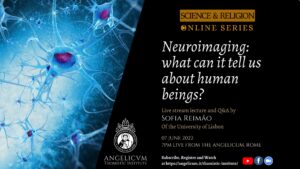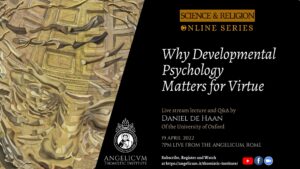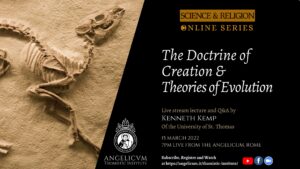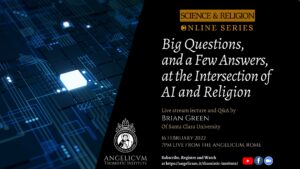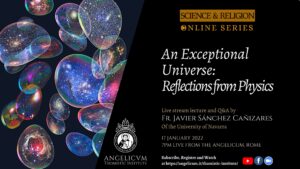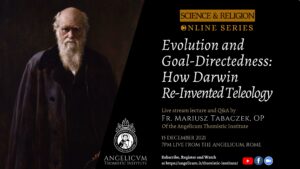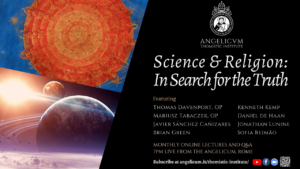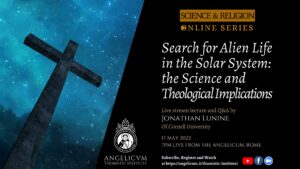St. Albert the Great: Medieval Wisdom for Modern Science
Fr. Thomas Davenport, OP
Pontifical University of Saint Thomas Aquinas – Angelicum
St. Albert the Great (1200-1280) was a Dominican priest, theologian, administrator, and bishop who was named a Doctor of the Church in 1931 and the patron saint of scientists in 1941. What does a mendicant friar who lived 300 years before the scientific revolution have to say to today’s scientists? This lecture presents the pivotal role that Albertus Magnus played in establishing the study of nature as a worthwhile and independent discipline, a fact that was not widely accepted by his predecessors. It also gives a taste of his own voluminous works on nature in general and in its minute detail. While the study of nature has far surpassed anything Albert could have imagined, the foundation for understanding what natural science is and how it relates to philosophy, whether a philosophy of the natural world or more proper metaphysics, and to theology, can best be answered using the ideas and tools that Albert laid down in his own day.
In his talk, Fr. Thomas Davenport references a lecture given by Fr. Aniceto Fernandez Alonso, O.P. who was a professor of Physical Science and Cosmology in the faculty of philosophy at the Angelicum from 1932-1950. The lecture was given here at the Angelicum at the inauguration of the academic year on November 14, 1935.
The original lecture, in Latin, is available here. The reference is: Fernández-Alonso, Anicetus. “Scientiae et Philosophia: Secundum S. Albertum Magnum.” Angelicum 13, no. 1 (1936): 24–59.
An English translation is available here. It was made by the Dominican friars of the Albertus Magnus Lyceum at the Dominican House of Studies in River Forest, Illinois around 1950.
Fr. Thomas Davenport, O.P. is an American Dominican, physicist, and philosopher. Before joining the Dominican Order, he studied physics at the California Institute of Technology before going on to earn his doctorate in physics from Stanford University studying theoretical particle physics. The focus of his scientific research was writing and testing simulations for high energy particle colliders like the LHC at CERN. After joining the Dominicans in 2010, he studied philosophy and theology in preparation for his ordination to the priesthood in 2017. In addition, he earned a Licentiate in Philosophy from the Catholic University of America, focusing on the philosophy of science and natural philosophy. In 2020 he joined the faculty of philosophy at the Pontifical University of St. Thomas Aquinas in Rome, where he teaches philosophy of nature and epistemology – while working on his second PhD – this time in philosophy. He is a frequent speaker on topics related to the intersection of faith and science and a contributor to a number of projects in this area including, the Thomistic Evolution project, the Aquinas 101 – Faith and Science series, and the annual Thomistic Philosophy and Natural Science Symposium hosted by the Thomistic Institute in Washington, DC. In addition, he serves on the Board of Directors of the Society of Catholic Scientists.
Related Content
